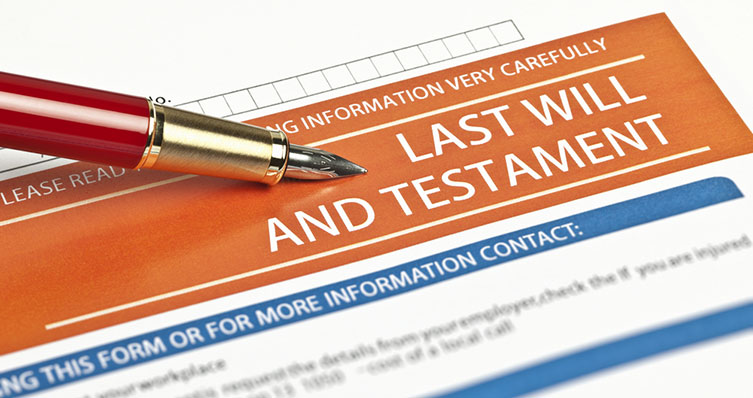
Do you have these critical legal documents?
I’m not afraid of death; I just don’t want to be there when it happens. – Woody Allen
Planning for your death is not the most enjoyable process. Unfortunately, bad things can happen if you don’t. One never knows when tragedy will strike; when it happens, it’s too late to start planning. Getting your affairs in order is advisable for everyone.
You may think that estate planning is only for the wealthy or for older people. Everyone can benefit from end-of-life planning, which entails more than writing a last will and testament. We are not providing legal advice, so you should consult with your financial advisor, CPA and an attorney who understands estate planning. A team approach should provide you with the best planning results.
Documents that everyone should have include:
1. Last will and testament. One of the most important estate planning documents that you can have, a last will and testament allows you to name the person you want to handle your affairs after you die and to explain how you want your assets distributed. You can name your estate’s executor (representative), name a trustee for any trusts created by the will and a guardian for any minor children you have. If you die without a will, it will be left up to a probate judge to decide how your assets are distributed and who will represent your estate. The judge may appoint someone you do not trust.
2. Living will. A living will (also known as an “advance directive”) articulates your end-of-life treatment wishes. It spells out what type of medical treatment you want at the end of your life if you are unable to speak for yourself. Some people do not want to be kept alive with machines and tubes hanging all over them. Others want to be kept alive at all costs.
3. Durable power of attorney. A durable power of attorney allows you to name someone to be in charge of making decisions for you if you become incapacitated for some reason, whether from an accidental injury, loss of mental capacity or some other reason. You may choose to name a separate healthcare power of attorney for medical decisions and a financial power of attorney for financial decisions. A healthcare power of attorney works hand-in-hand with a living will. The person you select for financial matters will not necessarily be the same person you want for health-related matters.
4. Living trust. A living trust allows you to bypass the potentially expensive and prolonged probate process and protects your privacy at the same time. A living trust provides for quicker distribution of your assets to your heirs since it can take effect immediately upon your death without probate. Generally speaking, it is most appropriate for people who have complicated financial or personal circumstances.
5. Final plan arrangements. Final arrangements can include organ donation and funeral arrangements, including how they are to be paid for.
6. Digital asset inventory. You should create and keep up-to-date a list of all online accounts, reward programs, passwords, financial and bill pay sites, social media, professional organization profiles, etc. to enable your family to manage your online presence when you are incapacitated or die.
If you have these documents in place, you should review them periodically. We recommend that you review them annually, perhaps on your birthday, to make sure they still reflect your intentions.
If you do not currently have an estate plan in place, you need a trusted financial advisor and an estate attorney who, working together, act in your best interest to help you develop a sound estate plan.
Let us help you and your attorney develop an investment plan to meet your financial goals and dreams.
